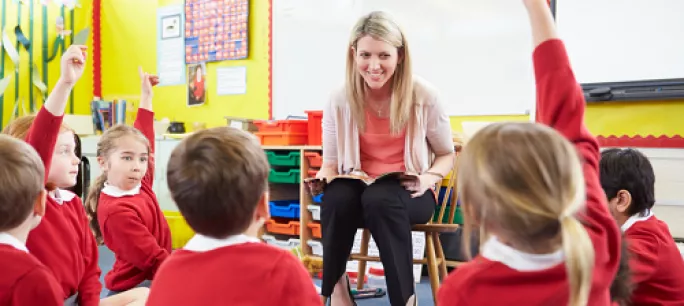Teacher stereotyping means higher marks for girls, says OECD
Teachers are awarding girls higher marks than boys who have the same ability, partly because they “hold stereotypical views” about pupils’ academic strengths, a new report on the gender gap in global education has found.
The study, published today by the OECD (Organisation for Economic Cooperation and Development), analysed students’ marks in reading and maths.
After taking into account their performance in the organisation’s Pisa (Programme for International Student Assessment) tests, it found that, across the OECD, teachers “generally reward girls with higher marks in both mathematics and language-of-instruction courses”.
The report suggests one reason could be girls’ “better classroom discipline and better self-regulation”.
But another factor, it says, is that teachers “hold stereotypical ideas about boys’ and girls’ academic strengths and weaknesses. Girls receive much higher-than-expected marks in language-of-instruction courses because teachers see girls as being particularly good in such subjects”.
“Language-of-instruction” would mean English in most of the UK, French in France, and other native languages.
The report goes on: “Teachers may perceive boys as being particularly good in mathematics; but because boys have less ability to self-regulate, their behaviour in class may undermine their academic performance, making this hypothesis difficult to test.”
Teachers in Albania, Iceland and Greece are shown as having the biggest gender bias towards girls for making in reading. In maths, the report says, the worst offenders are Albania, Israel and Iceland.
No individual figures are given for the UK.
The report also warns of other gender gaps emerging, with young men “significantly more likely than young women to have low levels of skills and poor academic achievement” and “more likely to leave school early, often with no qualifications”.
In universities and work, young women are under-represented in maths, physical science and computing, while they “dominate” in biology, medicine, agriculture and the humanities.
Many countries have seen a gender gap in favour of boys in maths narrow or disappear since 2003. But the report warns that this is the result of a “worrying trend” - that low performing boys are failing to improve.
It highlights a “stark” gender difference among the lowest performing students, with six out of 10 of the weakest learners in reading, maths and science being boys.
OECD deputy secretary-general Stefan Kapferer said: “Despite major progress over the past two decades in reducing the gender gap, we need to find new ways to address the social and emotional aspects of opening children’s minds to their abilities and future careers.”
A Department for Education spokesman said the government was supporting the Your Life campaign, which promotes STEM subjects, to “show young people - and especially girls - the exciting opportunities these subjects can bring”.
“This approach has helped ensure 10,000 more girls are now studying STEM A-levels than in 2010 and last year as many girls as boys achieved grade C and above in science GCSEs,” he added.
Related stories:
Schools should set gender targets to increase number of girls studying science, says CBI March 12 2014
Pisa: ‘Teachers must do more to make girls believe they can do well in maths’ January 23 2014
Keep reading for just £1 per month
You've reached your limit of free articles this month. Subscribe for £1 per month for three months and get:
- Unlimited access to all Tes magazine content
- Exclusive subscriber-only stories
- Award-winning email newsletters




